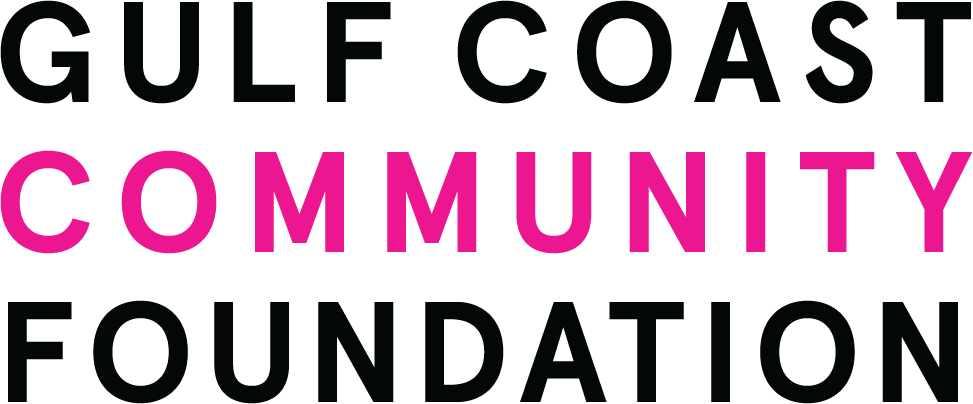Former MLB Player Jeremy Shelby on Identity, Opportunity and Giving Yourself Grace
This article is part of the series Listening to Diverse Voices, proudly presented by Gulf Coast Community Foundation.

Jeremy Shelby
Image: Michael Kinsey
Baseball is part of Jeremy Shelby's family legacy. The son of two-time World Series champ John T. Shelby—a.k.a. "T-Bone"—Shelby was a 2005 San Diego Padres draft-and-follow pick who later played for the Baltimore Orioles. He grew up in baseball locker rooms and attending batting practice with the likes of Gary Sheffield, Shawn Green, Adrián Beltré and Mike Piazza.
Now, at 36, Shelby is the founder, president and head of directors at Elite Life Management, the Sarasota-based wealth advisory company that he launched in 2020 after a three-year stint at Merrill Lynch and Motion Group Sports. In 2022, Shelby's company merged with HBKS Wealth Advisors, and he became the first Black partner in the organization.
A Hodgkins lymphoma survivor, Shelby is also active in community organizations, including on the board of the Leukemia & Lymphoma Society and the Boys & Girls Clubs of Manatee County. He and his wife, Alysha, have a daughter and a son; their third child, another daughter, is due in January.
Who was your biggest influence growing up?
“My parents. My mom was able to be home while my dad was away for baseball—his provided for us while making the sacrifice to not be home. His absence created opportunity, whereas in most Black families the father’s absence took opportunities away. Our dad being gone gave us everything from food on the table to an amazing life of travel.
"However, my dad would leave for spring training in February, and if the team made the playoffs, he wouldn’t be home until late October. We would spend about a month with him in the summer, but wouldn’t see him for six months out of the year. But we were aware of how that sacrifice provided for us as a family.
“Within that, my mom was the anchor. You can glorify the anchor, but while everyone is at surface level, when the boat is out in the water, that anchor is down in the muck holding the boat still. She was behind the scenes making sure everything was OK while she raised [me and my five siblings]. And she had high expectations."
How so?
“I remember bringing home 3.9 GPA, thinking, 'We’re going to dinner,' or 'I’m getting some shoes,' but she said, ‘Do you know that if you studied a little bit harder that you could have gotten that 4.0? You were so close.’”
How did growing up in a family of means—and the only Black family in your neighborhood—impact your childhood?
“My first encounter with racism was at a water park when I was about 10. There was a small kid, maybe 6 years old, who was with a mother or grandmother figure. While we were in the wave pool—where kids are getting moved around by the water—I accidentally bumped into him, and he said, ‘Move out of the way, Blackie.’ I thought the woman with him would scold him, but she didn’t say anything. It was almost like she thought I should move out of the way. I was embarrassed, like I did something wrong. That’s how some people are raised. It was probably a word that was said in that household.
“The next incident was when I was about 12. I was the only Black player on a traveling baseball team based out of Lexington. We were playing in a tournament in Pikeville, a place known for racism. While my team and I were on the field stretching and throwing, one of the players on the other team said, ‘Hey, look, guys—we’re playing against a monkey today.’ He had catcher’s equipment on, so I knew when I went up to bat, he’d be behind me. I thought he’d instruct the pitcher to throw the ball at me. I remember being in batter’s box and being afraid that I would get hit by the ball, and I had a bad game because of fear.
“The players on the team were my childhood friends. We played together for six years. No one came to my defense; no one called that player out. I looked around and realized that I was in this alone, and that no one could relate to me at that moment. It felt like isolation or defeat, but also the reality of world we live in. And it still exists.”
By the time you were in middle school, you’d been living in Lexington for about 10 years. Tell us about that.
“I lived in a predominately white neighborhood. Middle school was a time of finding which social circles I fit into. I was in weird place: a lot of my friends were not Black and would hang with their white friends, who looked completely different from me in their cargo shorts and polo shirts. Then there were my Black friends, who all grew up together in the same Black community, where they experienced the same situations and struggles. I desperately tried to find where I fit in between the two groups. I felt neglected by the white and Black communities and found myself alone. I was stuck in the middle.
“Luckily, I made two Black friends, who I'm still close with today. They were from a neighborhood with poverty—the 'hood. We clicked because of sports. I invited them my house and that changed everything. When you see culture, you see culture. It doesn’t matter what neighborhood you live in. They needed to see that I was just like them, from my mom—who also grew up in a poor neighborhood—telling them to take their shoes off in the house to going to church with us if they spent the night. They got experiences that they didn’t know existed in my world, and I needed the companionship.
"We became the best of friends. In fact, recently, my dad found of a video of us playing and laughing back then. I looked at my face and saw happiness that didn’t know I had as a child. Then I sent it to them and said, ‘Look how happy we were at that moment.’ We didn’t know what we were giving each other, coming from two different backgrounds. I needed them and they needed me. It was powerful."
How was your transition to college?
“I'd had an identity crisis [in terms of] being accepted as a Black man by a Black community; I thought others may not think I faced the same struggles coming from means. But all that changed when I went to Grambling State University, a HBCU. I was around Black men from around the world with diverse backgrounds. It was a cultural experience.
"That’s why HBCUs are so powerful. For the first time, I was in the majority—a feeling I’d never had before. Then I had to figure out how to set myself apart from the other Black people around me with the same skills, and that challenged me. It forced me to be vulnerable and dive into who I was beyond sports.”
An identity crisis like that could emotionally derail someone. How did you get through it?
“I spent a lot of time trying to make sense of it all. The valleys I went through gave me a survival kit. I’m more equipped to go through anything because of those struggles, and I can help others by being a vessel.
“If I didn’t talk about it, I would have gone through it all for no reason. I appreciate the struggles that I faced. We should strive to turn those into learning experiences that create strength and wisdom. But we should also give ourselves grace and mercy during those times. When we give ourselves grace, then we can give it to others.”
How does it feel to live in Florida during a time when Black history teaching restrictions are in effect?
“What we're facing isn’t anything new; it’s just presenting itself in a different way. Black culture and history have been hidden from the masses. There are things that we are still learning and uncovering. Think about the Tulsa Race Massacre. For years, we didn’t know about that. We have to find ways to navigate around legislative laws that are sorting out ways to not talk about our history. We must continue the conversation.
“During the Covid quarantine, witnessing the public persecution of Black people forced dialogue, and that time of isolation also forced reflection. It was the first time that many people wanted to have candid conversations. Conversations with someone with a different perspective can eliminate ignorance and sometimes create change—although most of time, change strikes fear.”
What would you like your white friends or acquaintances to be doing right now?
“Don’t be afraid to have the necessary conversations, but do so authentically. Those conversations should be the same when I’m not in the room, too. For instance, we can have a comfortable conversation between Black and white people we are familiar with—but what is being discussed when you’re in separate rooms?
"It’s tough for me to give all the responsibility to the white race. We all need to be having conversations right now.
“Also, understand that there are a lot of similarities within the Black culture, but it isn’t a blanket experience for every Black person. My story is different from the next person."
Listening to Black Voices is a series created by Heather Dunhill.




